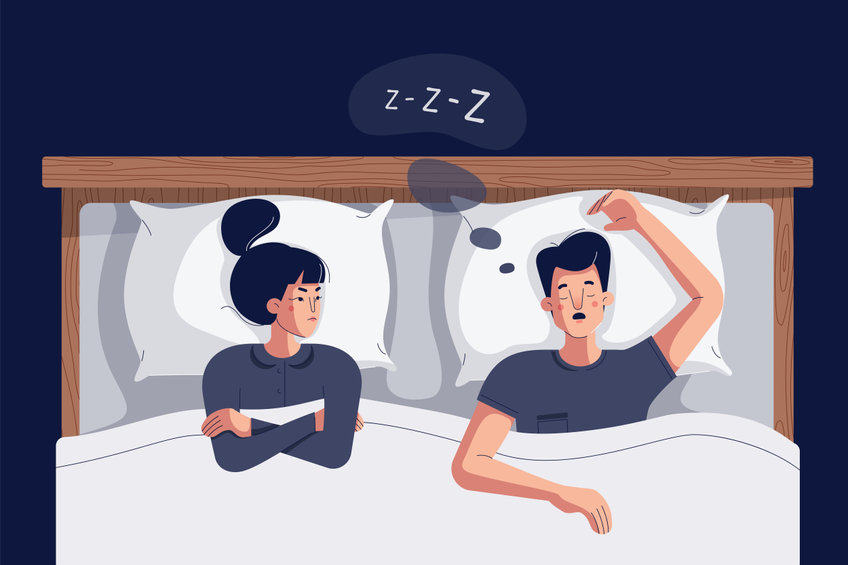Tips for Sleeping Better with Sleep Apnea

An estimated 30% of the population is currently suffering from bruxism, a condition that causes the grinding of the teeth. Bruxism usually occurs during the night and is considered a sleep disorder. Many people who suffer from bruxism do not realize they may also have another commonly linked sleep condition – obstructive sleep apnea.
What is Obstructive Sleep Apnea?
Obstructive sleep apnea (OSA) is a sleep disorder that causes an individual to stop breathing while asleep. Soft tissue in the throat area blocks the airway, causing snoring, gasping, or choking as the individual stops breathing. This can occur up to thirty times an hour. Often, the individual does not wake during these sleep interruptions and can be completely unaware that they are suffering from the disorder.
Why is OSA dangerous?
OSA can cause short-term issues including:
- Frequent and loud snoring
- Daytime sleepiness and fatigue
- Decreases in attention and concentration
- Forgetfulness
- Dry mouth and headaches upon waking
These issues can drastically affect your quality of life but leaving OSA untreated can also lead to serious long-term health issues. Individuals with OSA are three times as likely to develop heart disease and four times as likely to suffer a stroke. Each year, more than 38,000 people die from cardiovascular issues related to OSA.
There are some common risk factors for OSA, including:
- Being overweight
- Being over 40 years old
- Having a family history of snoring or sleep apnea
- Smoking
- Large tonsils or a large tongue
- Nasal or sinus problems
OSA and Bruxism
Individuals with these characteristics are more likely to develop OSA, but recent research has shown that individuals who are suffering from oral health issues like bruxism also are more likely to be suffering from OSA. There is no one prevailing theory on the root of this co-occurrence, but there are methods that can help an individual manage mild to moderate instances of both conditions.
Improving Sleep Quality to Manage Sleep Apnea
For most sleep-related disorders, improving sleep quality is an important first step in managing the condition. Some tips to improve sleep quality include:
- Working on managing stress levels: Bruxism can be exacerbated when you are suffering from increased stress and anxiety. Breathwork techniques, meditation, and yoga can be useful ways to control stress.
- Reduce alcohol consumption: Alcohol can relax your throat muscles, which can contribute to snoring and interrupted sleep. It can also create inflammation in your airways which may block breathing.
- Quit smoking: Smoking can cause the tissue in your throat to become inflamed and swell, which can cause breathing disturbances.
- Change your sleep position: Sleeping on your back can relax the throat muscles and restrict airflow. Try sleeping on your side to keep airways open.
In addition to these tips, keeping a consistent sleep schedule, avoiding caffeine and limiting screen time and blue light exposure an hour before bed can help improve the quality of your sleep.
Dental Care Options for Treating OSA
If you are working to improve your sleep quality and still find you are suffering from OSA and bruxism, your dentist may be able to fit you with an oral appliance which will help to open your airways and create a barrier between your teeth. This reduces tension in the facial muscles and can help reposition your tongue and jaw away from your airway.
To learn more about your oral appliance options, contact Railroad Dental Associates today.

